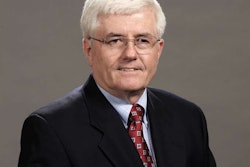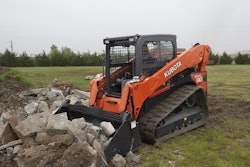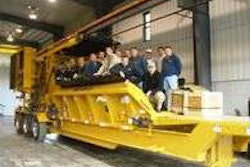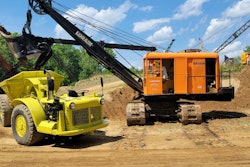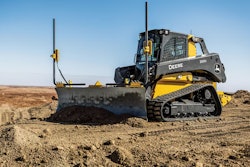Failure to Bash
 [email protected]
[email protected]
When I became the new editorial director of Better Roads in 2001, I made a pilgrimage to the Federal Highway Administration to tap into the agency’s vast resources of information and expertise.
The experience was a lot like gorging on Chinese food — post meal bloat followed by pangs of starvation. A professional PR guy introduced me to a half dozen executives and loaded me with 10 or 20 pounds of FHWA publications. It seemed like an embarrassment of riches, but when I sorted through the publications, only a few brochures bristled with the kind of hard facts I was seeking. The rest of the literature seemed to use hundreds of words and precious few facts to cover things like road building and safety in ways that would not offend anyone, while also not informing anyone of anything they didn’t already know.
I took solace in having expert contacts in all the right places in FHWA, but that turned out to be a limited benefit, too. A couple years later, I scheduled a series of meetings with FHWA personnel to learn about trends in the road and bridge industry. The afternoon before the scheduled meetings, an agency PR person called to emphatically inform me that I had committed a nearly treasonous breach of FHWA security by scheduling these meetings without the sanction of an official FHWA PR person. Not only must an official FHWA PR person set up such meetings, I was told, the official PR person must be in the room at the time the meetings occur.
Naively, I told the official PR person I would be delighted to have her sit in on all the meetings. Of course, being an official PR person, she already had commitments for the next day and the next week, and no surrogate could sit in for her. My information tour would have to be rescheduled for some time in the future. The distant future.
I have an aversion to bureaucrats, so I never again tried to deal officially with FHWA. I was able to gain some insights by speaking informally with FHWA experts at various industry functions they attended without professional PR people shielding them from unwashed muckrakers like me, but I always felt like a great information resource was being withheld from the road industry and the trade press for no other reason than bureaucratic excess.
In the months and years since then, each time I have encountered a state DOT employee who seems to have an anti-bureaucracy, small-government bias, I ask that person if they think FHWA is worth whatever it costs to have it. I focus on these people because they are the most likely to give me a candid, negative response.
To my surprise, every single person has answered yes, FHWA is worth having. While this is a sample of just seven or eight people, they all had experience working with FHWA, and they all disliked big government and bureaucracies. Several had to think about it for awhile before responding, but each of them told me that FHWA plays an important, behind-the-scenes role in coordinating road programs in the U.S. and advancing new concepts in technology and best practices . . . in addition to administering the spending programs put into law by Congress.
I confess to being disappointed at this outcome. It pains me to acknowledge the worth of an organization that has so little regard for my own enterprise. However, my concession is limited. I still think the communications side of FHWA needs a robust audit to see if it is performing any useful function to the country or the road industry. And I still think at least one of the agency’s official PR people should know the difference between asphalt and concrete, should drive to work every day in a car, and should be aware of the existence of a trade press and how it differs from the Washington Post.v




